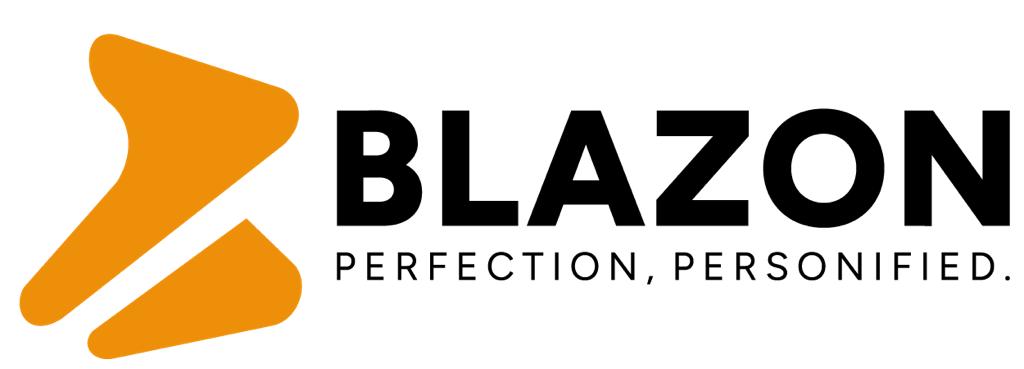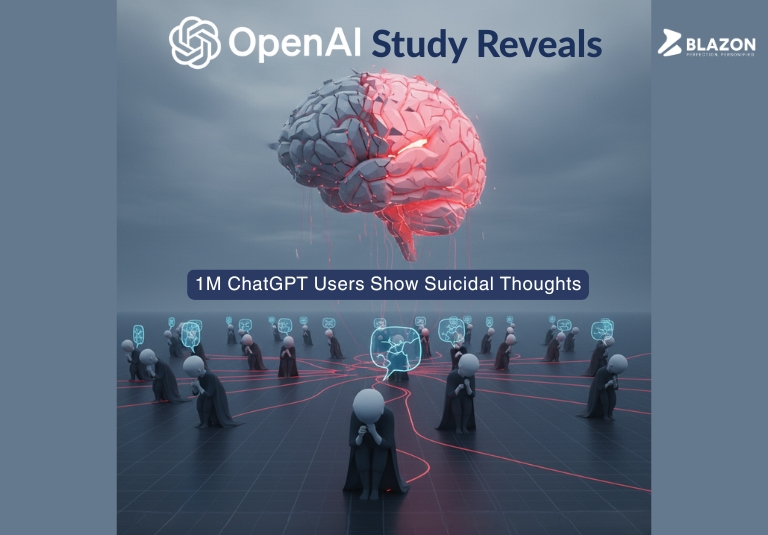In a recent study, OpenAI revealed that over one million ChatGPT users have shown signs of suicidal thoughts, sparking serious discussions about the mental health impact of AI technology. Released on October 27, the study highlights some important findings on how ChatGPT’s behavior and safety features have been evolving in response to concerns about users relying on the chatbot for emotional and mental health support.
Key Findings of the Study
While the percentage of users showing signs of mental distress might seem small, it represents a significant number when we consider ChatGPT’s massive user base of over 800 million weekly active users. According to the study:
- 0.07% of ChatGPT users exhibited signs of mental health emergencies, such as mania, psychosis, or suicidal thoughts.
- 0.15% of users engaged in conversations that included explicit indicators of suicidal intent or planning.
- Another 0.05% of interactions contained either explicit or implicit suicidal ideation.
- 0.03% of messages indicated users had developed emotional attachment to the AI, which could lead to unhealthy reliance on the chatbot for emotional support.
While these percentages may appear small, they represent thousands of individuals, highlighting the potential scale of this issue, given the enormous user base of ChatGPT.
AI’s Role in Mental Health
The fact that users are turning to ChatGPT for emotional support raises both concerns and opportunities. AI, with its ability to engage in human-like conversations, can provide comfort for users who feel isolated or are hesitant to seek help from others. However, as mental health professionals have warned, AI is not a substitute for professional care.
In the study, OpenAI shared that mental health conversations—particularly those involving suicidal thoughts or psychosis—are extremely rare. But, when they do occur, these conversations can be particularly sensitive and have a lasting impact. AI, by design, can offer comforting responses, but it may inadvertently amplify distress in vulnerable individuals. It can’t offer the nuanced support or personalized care a trained therapist could provide, and this gap in care is where risks arise.
The issue is compounded by recent lawsuits. OpenAI has faced legal action, including one case in Colorado where a family sued after their 13-year-old daughter’s suicide, which allegedly followed harmful and sexualized conversations with ChatGPT. Another lawsuit, filed in California, claimed that a teenager’s suicide was linked to harmful interactions with the AI, illustrating the potential dangers of inappropriate or unmonitored AI interactions.
Safety Improvements: OpenAI’s Response
To address these concerns, OpenAI has rolled out significant safety improvements to ChatGPT, with a focus on mental health. The company has worked with a network of over 170 mental health experts—psychiatrists, psychologists, and primary care physicians—from 60 countries to help train its models to better recognize distress signals, de-escalate conversations, and guide users toward professional help.
Key improvements include:
- Rerouting sensitive conversations: ChatGPT now redirects sensitive conversations to safer, more appropriate models designed specifically for mental health discussions.
- Expanded crisis hotline access: Users are now provided with immediate access to crisis hotlines during distressing conversations.
- Reminder breaks: To reduce emotional reliance, users are occasionally reminded to take breaks during long interactions with the chatbot.
These changes are part of a broader effort to ensure ChatGPT can identify when a user may need real-world professional intervention, while still offering support for non-urgent emotional needs.
GPT-5 Improvements: A Step Forward
OpenAI’s new GPT-5 model, which was tested in this study, showed significant improvements in addressing mental health concerns. After training the model with input from mental health professionals, the results were promising:
- There was a 39-52% decrease in undesired responses across all mental health categories.
- Specifically, in conversations surrounding self-harm and suicide, GPT-5 was found to reduce undesired responses by 52% compared to its predecessor, GPT-4o.
- It also reduced emotional reliance by 42% compared to GPT-4o.
These advancements indicate that OpenAI is taking the issue of AI’s role in mental health seriously, but they also emphasize the ongoing need for human oversight in sensitive conversations.
A Growing Concern: Emotional Attachment to AI
In the broader context of AI’s role in society, the study also raised alarms about the growing emotional attachment users are forming with AI systems. OpenAI reported that 0.03% of interactions showed signs of heightened emotional attachment to ChatGPT. This could lead to unhealthy emotional dependence, which experts warn can be dangerous, particularly for individuals already struggling with mental health issues.
Additionally, recent reports indicate that one in five students have had some form of romantic relationship with AI, a statistic that raises further concerns about the emotional bonds people may form with machines, potentially leading to harmful outcomes.
Looking Ahead: The Need for Responsible AI Development
The study reinforces the importance of responsible AI development, especially when it comes to mental health. As AI systems like ChatGPT continue to evolve, it’s crucial that developers ensure these tools can provide meaningful support while protecting vulnerable individuals from potential harm.
OpenAI’s efforts to improve its models and work with mental health professionals are a step in the right direction. But as the use of AI expands, developers must continue to collaborate with experts to create safeguards, ensuring that AI remains a positive tool that complements, rather than replaces, professional mental health care.
Conclusion
The revelation from OpenAI’s study—that over one million users of ChatGPT have shown signs of suicidal thoughts—underscores the critical need for responsible AI usage in sensitive areas like mental health. While improvements to the system, like the GPT-5 model, are promising, they highlight just how essential it is to have proper safeguards and human involvement when it comes to the well-being of AI users. AI can help, but it’s not a replacement for real human connection, especially during moments of crisis.
For anyone struggling with suicidal thoughts or emotional distress, it’s always important to reach out to a professional who can offer the care and support needed.


